Google display ads
As mentioned above, you can also run display campaigns which appear on the Google Display Network—an extensive collection of outside, third-party websites that have agreed to serve Google ads. Google Display ads can be in text, image, video, or rich media format, and can be targeted differently—such as through audiences and remarketing.
 |
| Google display ads |
Google shopping ads
Google shopping ads appear on both the regular SERP and in the shopping tab. These ads operate differently from regular search ads, since you can’t target keywords. Instead, you maintain a detailed catalog of your products and Google will match them to searches. You can, however, tell Google which keywords you don’t want your ads to appear for.
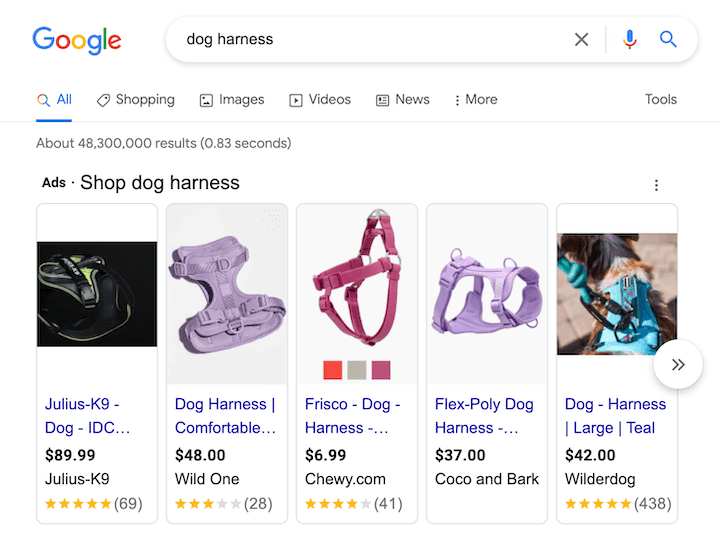 |
| Google shopping ads |
YouTube ads
Since Google owns it, YouTube advertising is done through Google Ads. You can create video, text, or display ads that appear during and before videos and elsewhere on the platform. YouTube ad targeting operates similarly to display targeting.
 |
| YouTube ads |
Why Google Ads appear on the SERP
Google Ads is focused around keywords, the words that people are most likely to use when searching for their product. When advertisers create a Google Ads search campaign, they create ad with a specific offer and choose a list of keywords to target that are relevant to the offer. When someone searches on Google (also known as a query), Google will check to see if any advertisers are bidding on keywords relevant to that search. If there are, ads will appear on that SERP.
How does Google decide which ads to show? Enter: the Google Ads auction.
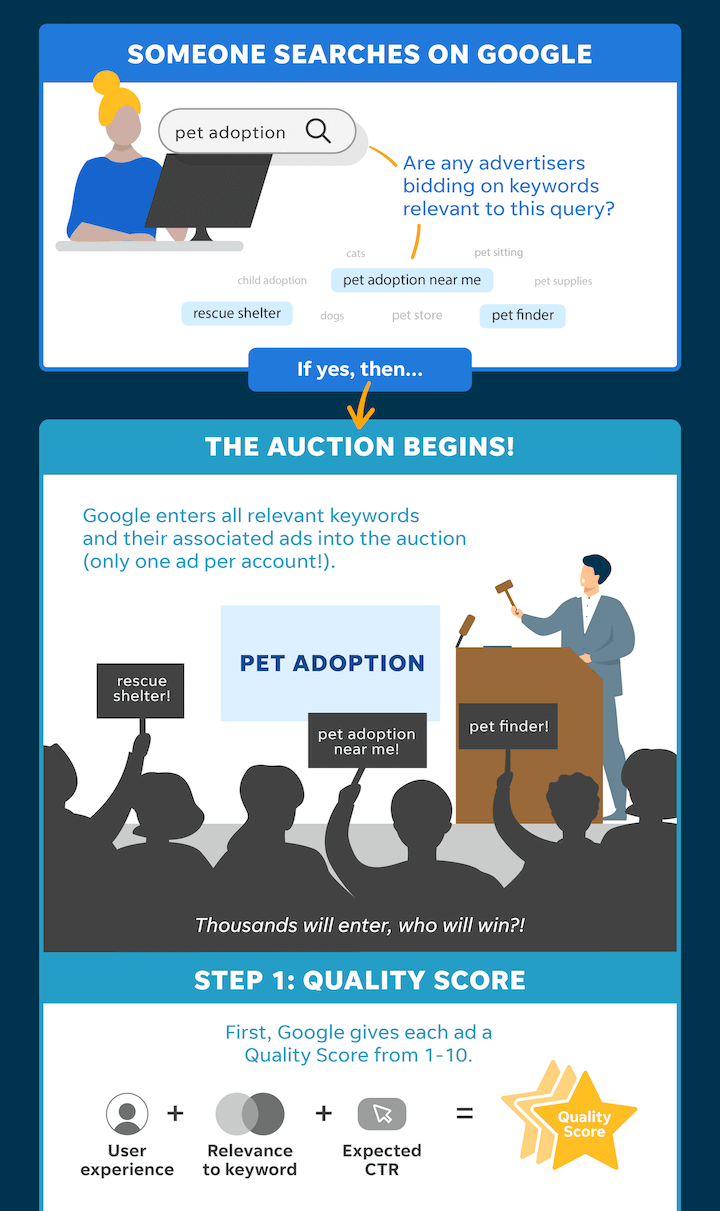 |
| the Google Ads auction |
We explain, in full, how the Google Ads auction works here, but we’ll pare it down for a quick version. If, when someone searches on Google, advertisers are bidding on keywords relevant to the query, Google will enter all keywords into the auction that it deems relevant—one per account.
It will first give each keyword a Quality Score from 1-10, based on its relevance to the query and other factors. Then, it will give each keyword an Ad Rank score by multiplying its Quality Score by the corresponding advertiser’s maximum bid. The ads with the highest Ad Rank scores are the ones that show.
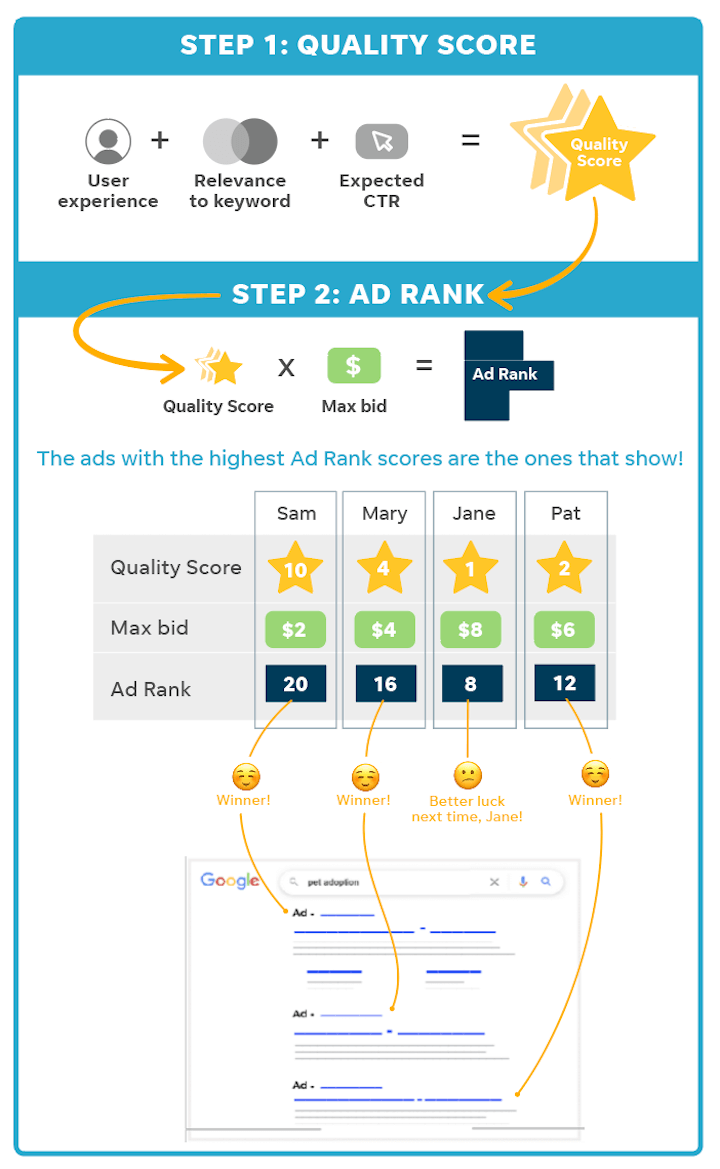
To “win” the Google Ads auctions and see your Google advertisement appear for relevant keywords, you’ll need to optimize your Quality Score and bid amount. The higher your Quality Score, in conjunction with your bid amount, the better your ad positioning. The following factors (among others) affect your Quality Score:
- The relevance of your Google ad to the search query
- The relevance of the Google keyword to your ad group
- The relevance of your ad to its landing page
- The historical click-through rate (CTR) of the ad and its ad group
- Overall historical account performance
There are also overall benefits to having a high-quality score:
- Lower costs– Google rewards advertisers with high Quality Scores by lowering their cost per click (CPC), helping improve ROI.
- Higher exposure – When you have high Quality Scores, your ads will display more often, in better positions on the SERP—the top vs. the bottom of the page. This enables you to get more clicks and conversions without having to raise your bids.
The cost of Google Ads varies based on a number of factors, including the competitiveness of your keywords and industry, your geographic location, the quality of your advertising campaigns and more.
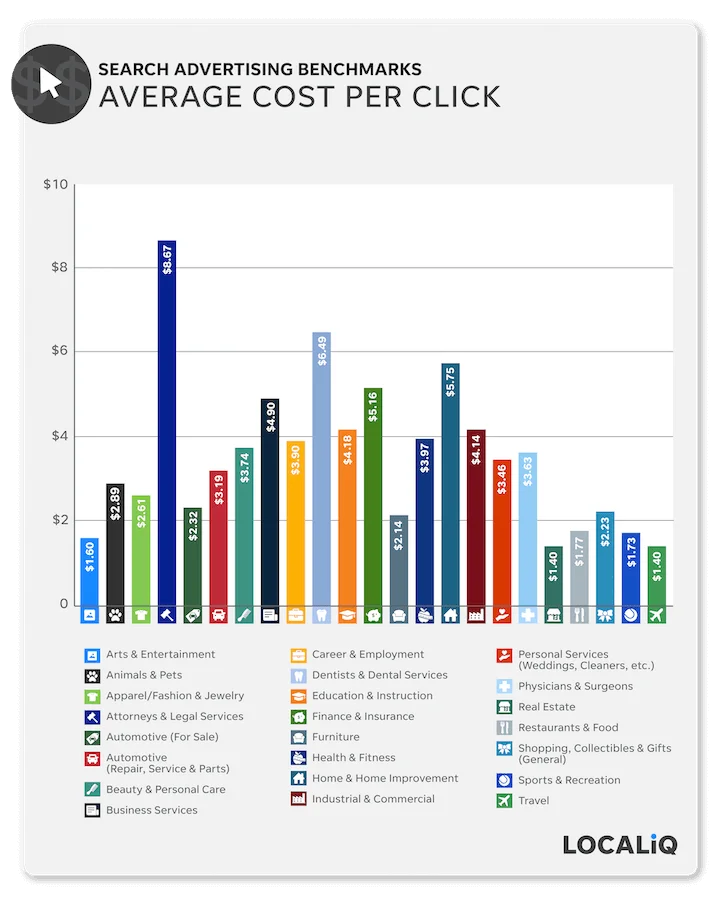 |
| Google Ads Costs |
In the US, the average cost per click for Google search ads across all industries is $2.32. In other countries, average costs for Google Ads are often much lower.
The Google Ads Performance Grader: A completely free audit of your Google Ads account
There you have it! Google Ads, explained.
To maximize the impact of your Google Ads ads and campaigns, you need to know which campaigns work for your business and where to make improvements.
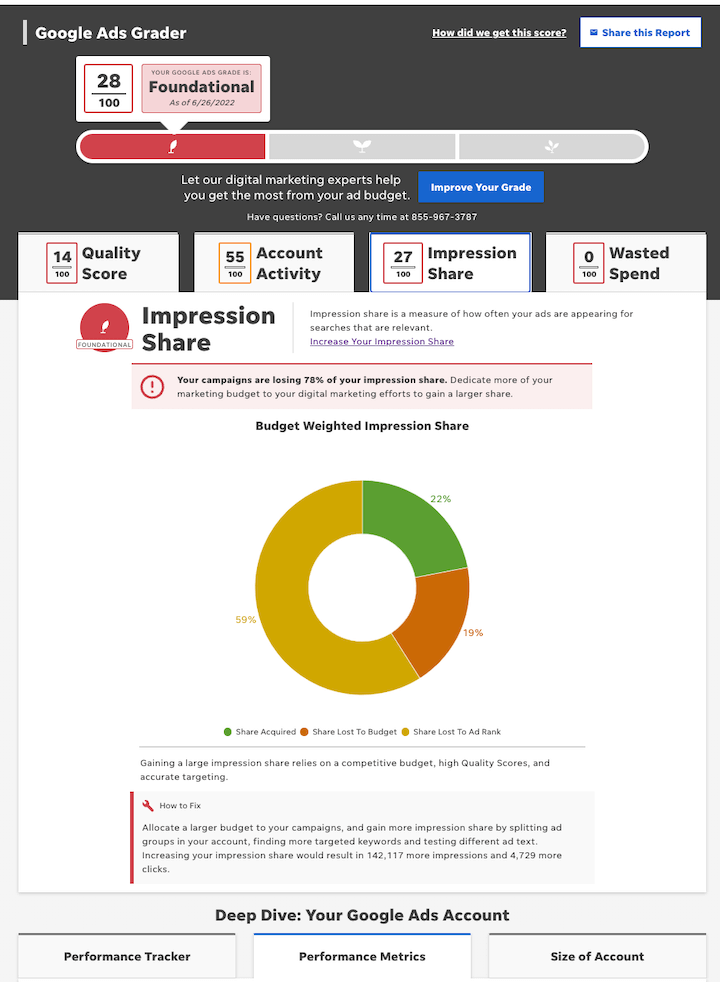 |
| Google Ads Performance Grader |
The Google Ads Performance Grader is the most comprehensive free tool of its kind. In 60 seconds or less, the Google Ads Performance Grader performs a thorough audit of your Google Ads account, identifying areas in which improvements can be made as well as highlighting successful areas of your account and how they compare to competitive benchmarks for your industry.





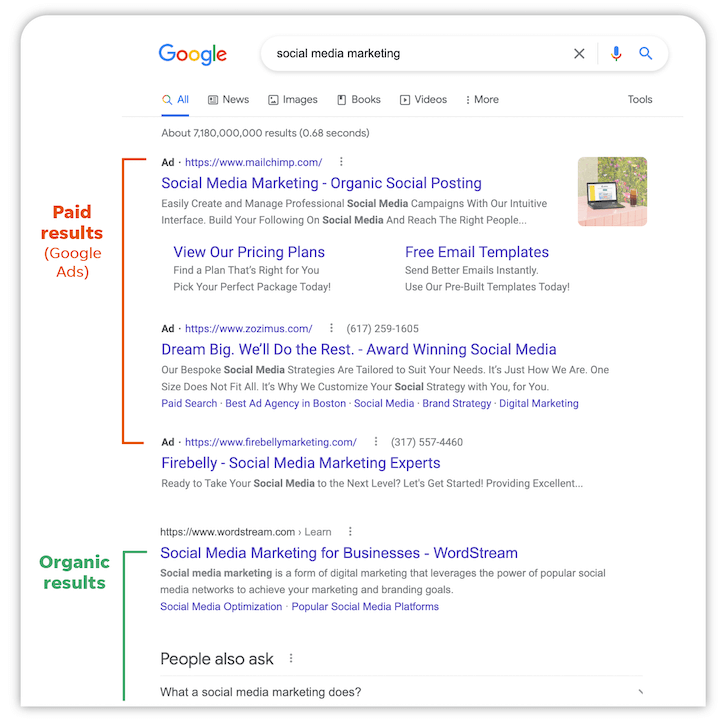


























No comments:
Post a Comment